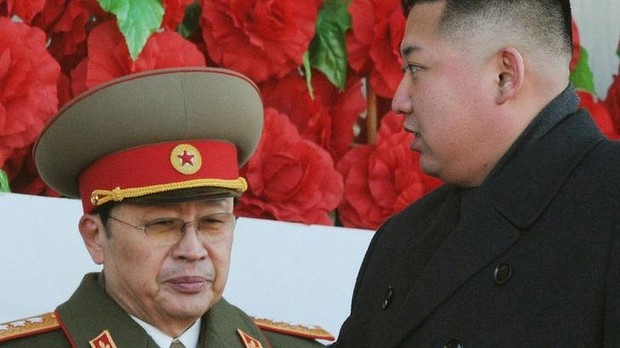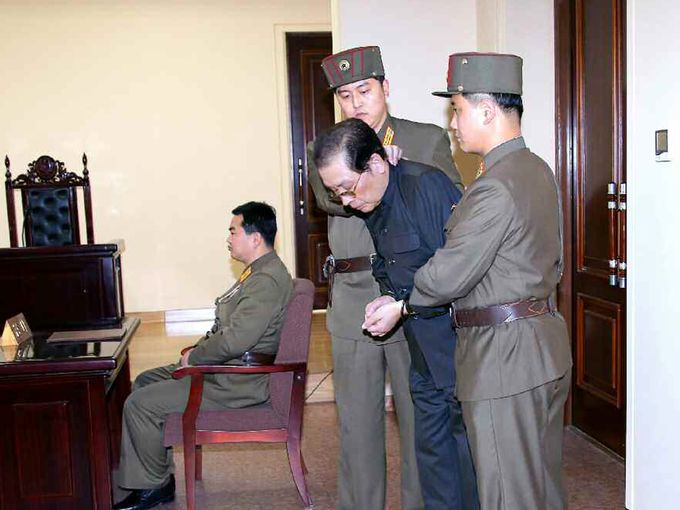North Korean dictator Kim Jong Un executed his former adviser and uncle, Jang Song Thaek Friday. Among several other charges listed against him, Jang was accused of contesting Kim's leadership and building relationships in the North Korean military with the hopes of staging a coup. He was highly respected in the country as its number two official, second in command only to Kim.

It is estimated that Kim was only 28 years old when he assumed the dictatorship after his father Kim Jong Il's passing in 2011. Jang Song Thaek, married to Kim Jong Il's sister, had been named caretaker for the young dictator's succession. With the sudden death of his father, Kim Jong Un had to rely on his father's counsel members, as he had not yet begun to gather trusted advisers around him in preparation for his succession.
According to the Washington Post, the young dictator has demoted and removed several senior advisers from the military and the Workers' Party in order to consolidate more power. It is estimated that Kim has replaced around 100 party heads and military officials since his reign began in 2011. The young dictator's execution of his uncle is an attempt to prove that he can oust "even those closest to him," according to a member of the Korea Institute for Defense Analyses in Seoul.
Left unchecked by those whose viewpoints differ, Kim could become more domineering and unruly. "[Kim] seems far more ruthless than his father. Kim Jong Un is more inclined to kill, and he seems more impulsive and emotional," says Andrei Lankov, expert of affairs in North Korea. The country's relations with China could also potentially deteriorate in light of Jang's death, since he had formed economic ties with them.

According to ABC News, among the criminal charges against Jang were "unwillingly standing up from his seat and half-heartedly clapping" for his nephew, and failing to display a sculpture of the young leader's signature prominently. Jang confessed to the charges against him, but it remains uncertain whether this was forced by the dictator in an attempt to justify the execution.




















